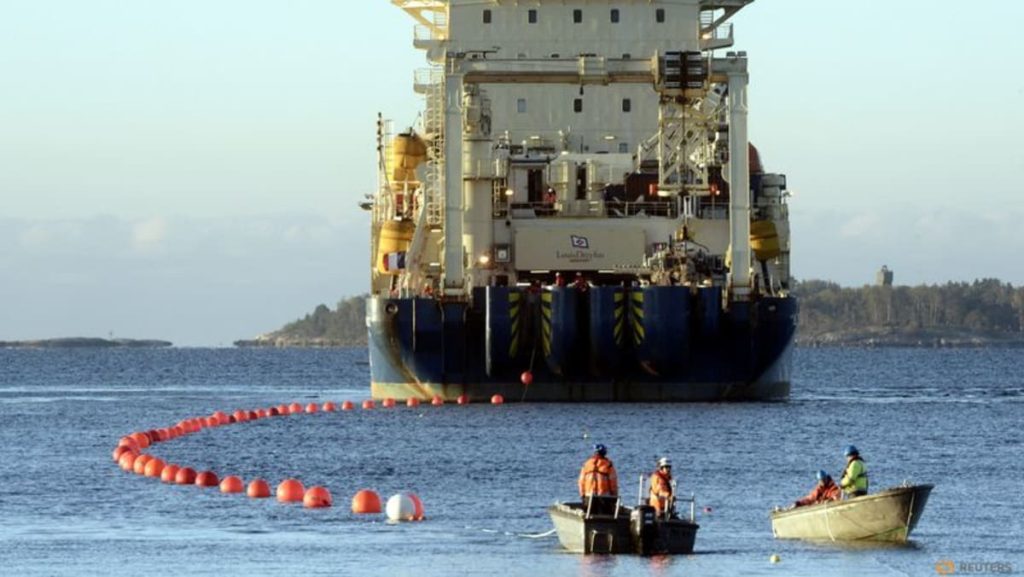The vulnerability of undersea cables, the backbone of global internet connectivity, has emerged as a significant concern in recent years. The incidents involving damaged cables, often attributed to ship anchors, raise questions about the intentional disruption of these critical infrastructures. A case in point is the October 2023 incident where a Chinese vessel’s anchor severed two undersea cables and a gas pipeline. Though initially denied, Chinese authorities eventually admitted responsibility, attributing the damage to an accidental dragging of the anchor by the Hong Kong-flagged ship NewNew Polar Bear. This incident highlights the challenges in determining intentionality and attributing responsibility in such cases, particularly given the difficulty of constant surveillance in the vast expanse of the oceans. The lack of a robust international legal framework for holding actors accountable in international waters further complicates the issue. The potential for deliberate sabotage and the strategic implications of these incidents cannot be ignored.
The Baltic Sea cable incidents, though not conclusively proven to be malicious, underscore the vulnerability of this vital infrastructure and the potential for its disruption as part of a hybrid warfare strategy. Hybrid warfare, characterized by the blend of conventional and unconventional tactics, including cyberattacks, disinformation campaigns, and economic coercion, often leverages vulnerabilities within critical infrastructure. Disrupting undersea cables could serve as a potent tool in such a strategy, disrupting communications, financial transactions, and other essential services. The incident involving two severed cables connecting Taiwan to its Matsu islands further illustrates this vulnerability. While attributed to Chinese non-naval vessels and lacking evidence of deliberate intent, the 50-day internet outage experienced by 14,000 residents demonstrates the potential impact of such disruptions, particularly in a conflict scenario.
The sheer volume of undersea cables crisscrossing the world’s oceans, coupled with the vastness of these bodies of water, makes complete security an unattainable goal. The absence of a comprehensive legal framework governing the protection of these cables in international waters exacerbates this challenge. The pursuit of accountability for cable damage incidents is often hampered by the difficulty of proving intent or definitively attributing responsibility. States are hesitant to escalate such situations without irrefutable proof, given the potential for diplomatic and political repercussions. This ambiguity creates a permissive environment for potential adversaries to exploit these vulnerabilities without fear of significant consequences.
The Asia-Pacific region, with its dense network of undersea cables and strategic importance, presents a particularly attractive target for hybrid actors. The Straits of Malacca, a critical chokepoint for global internet traffic, exemplifies this vulnerability. This narrow passageway, connecting Asia, India, the Middle East, and Europe, hosts a significant concentration of undersea cables. The relatively shallow waters of the Straits increase the risk of accidental or intentional cable damage. A disruption of these cables would have far-reaching consequences, significantly impacting regional and global connectivity, trade, and communication.
The potential for cable sabotage underscores the need for enhanced protection measures and international cooperation. Strategies could include: strengthening international legal frameworks to address cable protection in international waters, implementing robust monitoring and surveillance systems to detect and deter potential threats, developing redundant cable routes to mitigate the impact of disruptions, and fostering greater transparency and information sharing among states to enhance situational awareness and facilitate coordinated responses. Building resilience into the global internet infrastructure is crucial to mitigating the risks posed by these vulnerabilities.
The incidents involving damaged undersea cables serve as a wake-up call to the international community regarding the vulnerability of this critical infrastructure. While attribution and proof of intent remain challenging, the potential for deliberate sabotage as part of a hybrid warfare strategy cannot be ignored. The lack of a robust international legal framework and the difficulty of securing these vast underwater networks further complicate the issue. The Asia-Pacific region, with its dense concentration of cables and strategic importance, is particularly susceptible to such threats. A concerted international effort is required to address these vulnerabilities, enhance security measures, and ensure the resilience of global internet connectivity.










